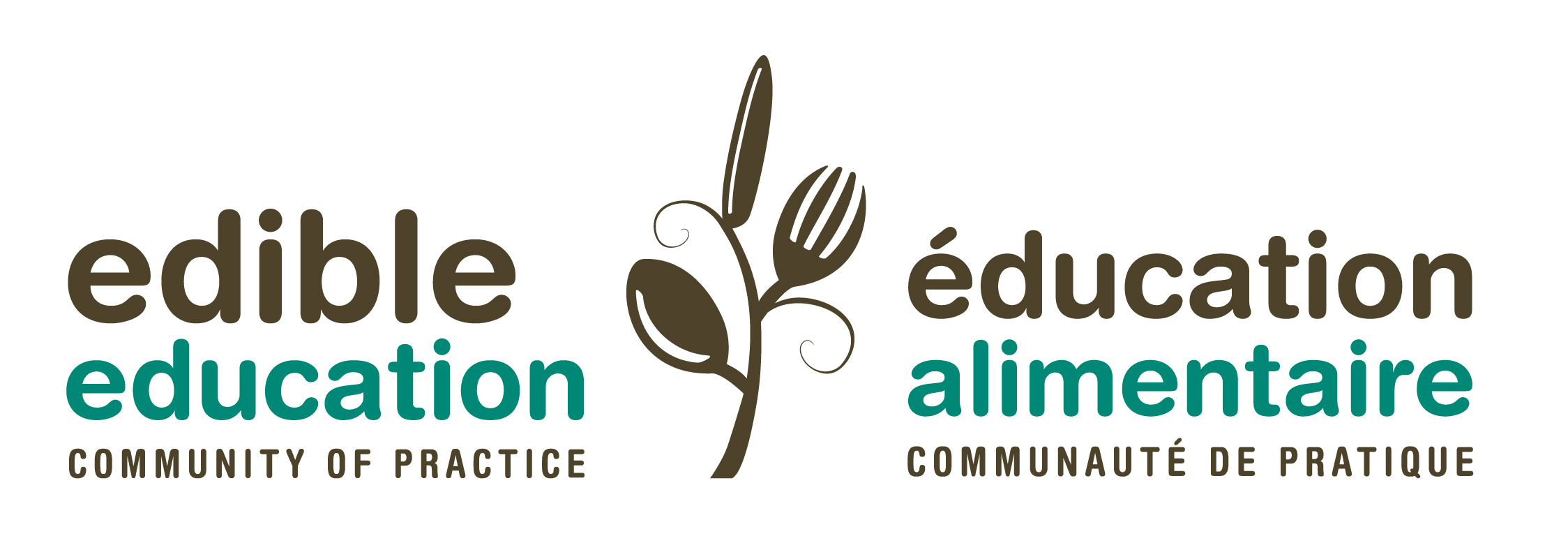Mark your calendars!
CoP conversation on Land-Based Learning
Tues Nov 16 at 12:30 PST / 3:30 EST / 4:30 AST
Farm to school, also known as local food to school, is grounded in re-learning, re-establishing and acknowledging and supporting existing place-based food systems. As F2CC works to advance food systems rooted in place, and as we work to better honour Indigenous ways of knowing and being, we are celebrating Land-Based Learning during Farm to School Month 2021 and into the future.
As a part of our work to honour land-based learning we have recorded a conversation between three educators (see below) about their land-based learning practices.
View the conversation recording in YouTube
We encourage you to mark Tuesday November 16th at 12:30 PST / 3:30 EST / 4:30 AST on your calendars for this Community of Practice conversation on land-based learning where we will hold small group discussions to reflect on and discuss what land-based learning can look like in our own edible education practices. This hour and a half-long conversation will let participants speak to any points that resonated with them in the recorded conversation and to share their own ideas and challenges regarding this approach to education.
Download the discussion guide to help you reflect
on the conversation before our November 16th event
If you are already a member of the Community of Practice, we’ll send a calendar invite for the event soon. If you are not already a member of the CoP but wish to join this conversation please register for the CoP here.
About the speakers who joined us for our recorded conversation:
- Daemin Whetung is a mother of 2 with another one on the way in December. Daemin has been raised learning, working and loving wild rice, taught to her by her dad James Whetung who is the dreamer and founder of Black Duck Wild Rice. She believes that “connection to the land” has been disrupted for many people and hopes to help people reconnect to the land and water through wild rice and her experience with it.
- Alan Macdonald teaches grades 7 and 8 in an enrichment program, Challenge North, at Loughborough Public School. Increasing food literacy, addressing climate change and finding opportunities for reconciliation have been motives behind his school’s recent projects, such as seeking a salad bar grant from Farm to School Canada, school composting program, raised garden beds on site and support of a large food bank garden within the community, as well as creating wampum inspired artwork in collaboration with Indigenous community members and Indigenous cultural spaces on school property. You can learn more about the school’s initiatives in this blog post: Loughborough Public School: Climate Action and Reconciliation through Food Literacy
- Sian Nalleweg is a recent graduate with an Early Childhood Education; Diverse Abilities Educator Diploma and is working one on one in an Education Assistant role for School District 50, Haida Gwaii. She is a food champion, land protector and passionate advocate for children’s rights. She is a member of the Early Childhood Educators of British Columbia, The Canadian Child Care Federation, and Vice President of her local CUPE union. Sian shares: “My family means everything to me, and if you don’t find me at work, you can find me at the beaches and the forests surrounding my home with my family.” Learn more about Sk’aadgaa Naay Elementary School’s salad bar program. Access a video that Sian shared about Orange Shirt Day this year at the school.
What do we mean by land-based learning?
Local food systems are rooted in the land we’re on and that we’re surrounded by, and this land comes with deep histories, stories, and lessons to share. We believe that education about our local food system must tie back to the land and its histories and stories. Land-based learning involves learning from the land and water, and understanding and fostering our connection to them. Farm to school is inextricably connected with land-based learning practices: land-based learning, as an experiential approach, helps us foster a relationship with food and understand how we sustain ourselves. Land-based learning is rooted in Indigenous teachings and worldviews, which should be acknowledged whenever this approach is used.
To learn more about how F2CC is framing land-based learning and to access resources on this theme visit our Farm to School Month 2021 page.







[…] has developed a discussion guide to help you reflect on this recorded conversation before the November 16th […]